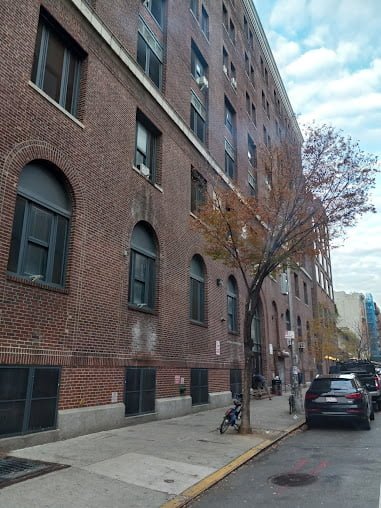According to data from the National Survey on Drug Use and Health, more than 14 million U.S. adults have tried methamphetamine at least once. Methamphetamine is a stimulant drug that increases the activity of neurotransmitters like dopamine; however, its stimulant effects wear off rapidly.
The addictive nature of methamphetamine is often worsened by the “binge and crash” pattern associated with its use.
Treatment Facilities for Methamphetamine Addiction that Offer Residential Care
Inpatient rehabilitation settings can be beneficial for long-standing or severe addictions. During their stay in an inpatient treatment facility, patients reside at the facility where they receive methamphetamine addiction treatment. These facilities offer individual therapy, group counseling, peer support, family therapy, and ongoing support. Inpatient programs are most suitable for individuals who:
- Have experienced repeated relapses in the past.
- Have a co-occurring mental health condition and a stimulant use disorder.
- Lack a stable support system.
- Face transportation barriers to accessing treatment.
- Have previously dropped out of an outpatient program.
- Depend heavily on methamphetamine.
- Abuse multiple substances.
- Experience severe depression or suicidal thoughts.
Methamphetamine Dependence and Outpatient Treatment
For individuals with less severe addiction problems, outpatient treatment may be an option. Outpatient programs allow patients to complete treatment during the day and return home afterward. They can continue their regular schedules of work, school, and family responsibilities while participating in methamphetamine addiction recovery programs. Outpatient programs are suitable for individuals who:
- Are highly committed to their sobriety.
- Have milder dependence on methamphetamine.
- Can reliably attend appointments with accessible transportation.
- Can establish strong support networks.
- Aim to reduce the frequency of relapses.
Do I Require an Inpatient Treatment Center?
To determine the appropriate level of care, it is recommended to seek a professional evaluation from a doctor. The physician will consider various factors, including:
- General health history.
- Current physical condition.
- Mental health condition.
- Past substance use patterns.
- Previous detox and addiction treatment experiences.
- Potential for self-harm or aggression.
Based on this evaluation, the physician can recommend the most suitable treatment for methamphetamine dependence, which may involve a residential treatment center to facilitate recovery and sobriety. If the following symptoms are present, the doctor may suggest a specific treatment setting:
- Engaging in drug-seeking activities, such as theft, to support further methamphetamine use.
- Difficulty stopping methamphetamine use and experiencing severe withdrawal symptoms, including depression and suicidal tendencies. Withdrawal-induced psychosis can also occur.
- Persistent drug use despite significant adverse health consequences, such as hallucinations, malnutrition, tooth decay, paranoia, cognitive impairment, confusion, anxiety, or insomnia.
- Continued use of methamphetamine despite negative impacts on personal life, career, or relationships.
Methamphetamine Use, Abuse, and Dependence
Methamphetamine, known by the brand name Desoxyn, is a prescription drug approved for treating ADHD and obesity, but its use for these conditions has declined in recent years. When used within the prescribed dosing range, as directed by a doctor, methamphetamine can be used safely. Misuse and abuse occur when the drug is taken in ways other than intended, such as taking higher doses or using it more frequently than prescribed or combining it with other substances. Methamphetamine abuse involves using the drug without a prescription or using illegal forms like crystal meth to achieve a high.
Misuse and abuse of methamphetamine can lead to severe health problems and increase the risk of addiction. Methamphetamine addiction is a chronic disease characterized by compulsive use despite negative consequences, and it impairs a person’s ability to self-regulate and stop using the drug. The effects of addiction can worsen over time.
Are Treatment Facilities Discreet and Secure?
Federal law protects privacy during rehabilitation. The Health and Human Services (HHS) and the Substance Abuse and Mental Health Services Administration (SAMHSA) require patient consent before disclosing any information, with limited exceptions. Methamphetamine treatment facilities respect patients’ right to anonymity. Facilities that prioritize patient privacy can be recommended.
How Long Does Methamphetamine Treatment Take in a Residential Facility?
The duration of treatment varies for each individual. While many people choose a 30-day program, some find longer stays more beneficial. Some facilities offer 60-day or 90-day programs, which can be more suitable for individuals with severe addictions or long-standing struggles. Research suggests that longer treatment programs (lasting more than 90 days) are more effective in achieving long-term sobriety. The optimal length of treatment depends on factors such as the patient’s level of recovery, specific needs, and recommendations from healthcare professionals.
How Does Methamphetamine Rehab Work?
For those unfamiliar with rehabilitation programs, a methamphetamine rehab center provides a safe and supportive environment for treatment. The team at the center offers understanding and support throughout the healing process. Upon arrival, a comprehensive intake evaluation, similar to the one described above, is conducted to assess the patient’s mental health, extent of meth addiction, substance abuse history, withdrawal challenges, and previous treatment experiences. Based on this assessment, an individualized treatment plan is developed.
If withdrawal has not been experienced before, methamphetamine detoxification may be the next step, provided by the rehab center. Methamphetamine withdrawal is generally not distressing or life-threatening, although symptoms such as anxiety, depression, fatigue, meth cravings, and rare cases of psychosis can occur.
Detoxification is followed by the bulk of the treatment. Methamphetamine addiction treatment involves various therapies depending on the rehab center’s treatment philosophy. Common treatment techniques include personal counseling, group counseling, peer support sessions, family therapy, and planning for post-treatment assistance.
The Matrix Model is a popular treatment approach for methamphetamine addiction. It incorporates several interventions, such as drug testing, establishing a supportive therapeutic relationship, group and family therapy, anti-drug education, relapse prevention classes, early rehabilitation skill development, 12-step programs, social support networks, and analysis of relapses. The Matrix Model has been successful in reducing drug abuse and risky behaviors while improving mental health.
Treatment Facilities for Methamphetamine Addiction Near Me
We can provide guidance to find expert treatment facilities for methamphetamine addiction. There may be treatment centers near your location that specifically cater to methamphetamine use. These options are practical for patients who want involvement from their loved ones or require visitation during specific times. Some individuals may benefit from being in an environment where they are removed from social and psychological pressures contributing to their drug use. The choice of treatment setting is available to you.
Once a person completes rehabilitation, what are their next steps?
After completing treatment, individuals are better equipped to maintain sobriety. Many facilities that treat methamphetamine addiction also provide aftercare services. Healthcare providers often develop personalized aftercare plans for patients to follow, as continued support is essential for remaining sober.
Common aftercare options include:
- Crystal Meth Anonymous, a 12-step program where individuals addicted to crystal meth can meet and discuss their struggles.
- Alternative group therapy programs like SMART Recovery.
- Alumnae associations for ongoing support.
- Tailored therapy sessions involving multiple individuals.
Some patients may benefit from continuing their care in an outpatient setting after completing an inpatient treatment program. This is known as “step-down treatment.”
Check Out Our “Am I a Meth Addict?”
Assessment If you suspect you or someone you care about may be dealing with drug addiction, please take our 5-minute “Am I A Drug Addict?” self-assessment test below. The assessment consists of 11 yes or no questions and provides information about the likelihood and severity of a substance use disorder. The test is free, private, and does not require personal information to obtain the results.
Disclaimer: Only a medical or clinical professional may diagnose a substance use disorder. This assessment may serve as an indicator of a potential addiction but should not replace a diagnosis from a professional treatment provider.
FAQs About Rehab for Methamphetamine Addicition
If the person is engaging in drug-seeking activities, such as theft, to support their methamphetamine use, having difficulty stopping the drug use and experiencing severe withdrawal symptoms like depression and suicidal tendencies, or persistently using the drug despite significant adverse health consequences, such as hallucinations, malnutrition, tooth decay, paranoia, cognitive impairment, confusion, anxiety, or insomnia. Continued use of methamphetamine despite negative impacts on personal life, career, or relationships can also be a sign that inpatient treatment may be necessary.
Federal law protects privacy during rehabilitation. The Health and Human Services (HHS) and the Substance Abuse and Mental Health Services Administration (SAMHSA) require patient consent before disclosing any information, with limited exceptions. Methamphetamine treatment facilities respect patients’ right to anonymity. Facilities that prioritize patient privacy can be recommended.
The duration of treatment varies for each individual. While many people choose a 30-day program, some find longer stays more beneficial. Some facilities offer 60-day or 90-day programs, which can be more suitable for individuals with severe addictions or long-standing struggles. Research suggests that longer treatment programs (lasting more than 90 days) are more effective in achieving long-term sobriety. The optimal length of treatment depends on factors such as the patient’s level of recovery, specific needs, and recommendations from healthcare professionals.
A methamphetamine rehab center provides a safe and supportive environment for treatment. Upon arrival, a comprehensive intake evaluation is conducted to assess the patient’s mental health, extent of meth addiction, substance abuse history, withdrawal challenges, and previous treatment experiences. Then an individualized treatment plan is developed. If withdrawal has not been experienced before, methamphetamine detoxification may be the next step. This is followed by a range of therapies including personal counseling, group counseling, peer support sessions, family therapy, and planning for post-treatment assistance.
After completing treatment, individuals are better equipped to maintain sobriety. Many facilities that treat methamphetamine addiction also provide aftercare services. Healthcare providers often develop personalized aftercare plans for patients to follow, as continued support is essential for remaining sober. Common aftercare options include programs like Crystal Meth Anonymous, alternative group therapy programs like SMART Recovery, alumnae associations for ongoing support, and tailored therapy sessions. Some patients may benefit from continuing their care in an outpatient setting after completing an inpatient treatment program. This is known as “step-down treatment.”
Check to see if your insurance is in-network at any of our Addiction Centers
- We will conduct an immediate verification of the coverage provided by your insurance provider.
- As a result, you may be eligible for treatment at one of our facilities with a discounted rate.

13550 Memorial Hwy Miami FL 33161

206 Bergen Ave Kearny NJ 07032

1659 Scott Blvd #30 Santa Clara CA 95050

2725 S Jones Blvd Las Vegas NV 89146

12012 Boyette Rd Riverview FL 33569

1301 Poinciana Dr Pembroke Pines FL 33025

6900 Southpoint Dr N Jacksonville FL 32216

14048 South Highway 89 Spanish Fork UT 84660

7305 N Military Trl West Palm Beach FL 33410

8 E 3rd St #8908 New York NY 10003

23455 Sparrow Rd Mandeville LA 70448

9100 Andermatt Dr STE 1 Lincoln NE 68526

50 Irving St NW Washington DC 20422

2749 SW Port St Lucie Blvd Port St. Lucie FL 34953

150 E 700 S Salt Lake City UT 84111

782 Park Ave #1 San Jose CA 95126

13850 W Capitol Dr Brookfield WI 53005

803 W Main St A Payson AZ 85541

1145 Marina Blvd Bullhead City AZ 86442

Sixth & Lenora Building 2033 6th Ave 4th Floor Seattle WA 98121
We can help you find the care you need to get clean and stay sober.
View All Facilities


